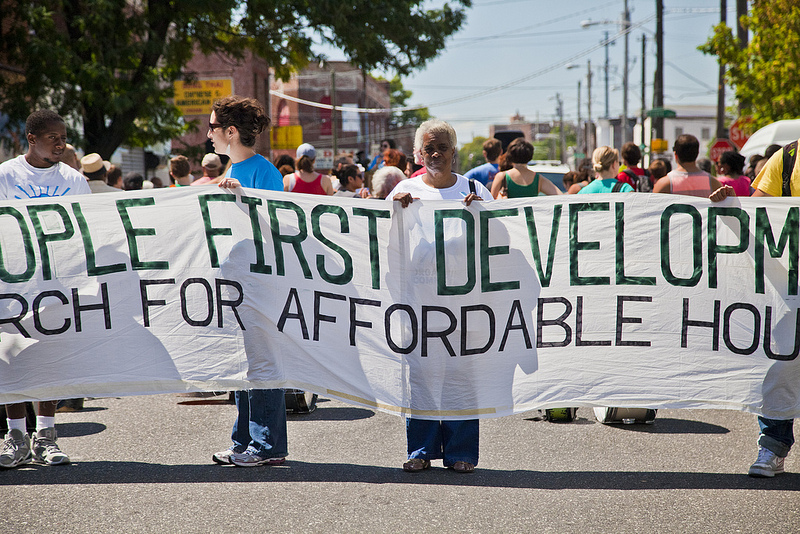Can Philly Afford its Fight Against Gentrification?
When city budgets are tight, how you define value is crucial.

Photo | Laura Kicey
One of the cruel things about gentrification is that it can be like wanting someone who doesn’t want you back. Those who face the impact of gentrification have an unrequited love with a neighborhood that changes right before their eyes, only to do tell them that things are different now.
It’s not you, it’s me.
The building uncertainty, insecurity, change and devastation involved in gentrification is like a real estate break up that leaves former partners, who once grew together, standing on opposite sides as the other moves on to become a bigger, better (and probably greener) pasture.
It’s happening all over, not only in New York and Philadelphia, but places like Boston, Chicago, and Washington, D.C. And as is the case with any breakup, the mourning party is left to get by with a little help from friends.
The New York Times reports that some cities, like Philadelphia, are reducing or freezing property taxes in overturned areas, to help ease the pain of seeing one’s neighborhood with someone new.
The tax breaks are easiest on cities where budgets are strong; they can afford to forgo the extra cash from property tax revenue. “A decision to reduce property taxes can be risky because such levies account for at least 50 percent of operating budgets in most American cities and sometimes provide as much as 80 percent of a city’s revenue,” the paper said. It’s an interesting choice for Philadelphia, which in the middle of funding troubles for the School District, has seen its first population increase since the 1950s.
“We feel the people who toughed it out should be rewarded,” said City Council president Darrell L. Clarke, is quoted as saying in the Times piece, which also cites Council’s approved legislation to limit property tax increases for longtime residents. “We feel it is incumbent upon us to protect them.”
It also makes more sense; those with tenure also have investment. And while newcomers are most certainly welcomed, it’s nice to see that the city wants to take care of home, first. Like any relationship, real estate is about commitment, growth, and keeping things new, without losing one’s integrity.
Dance with the one who brung ya.
Follow @MF_Greatest on Twitter.


